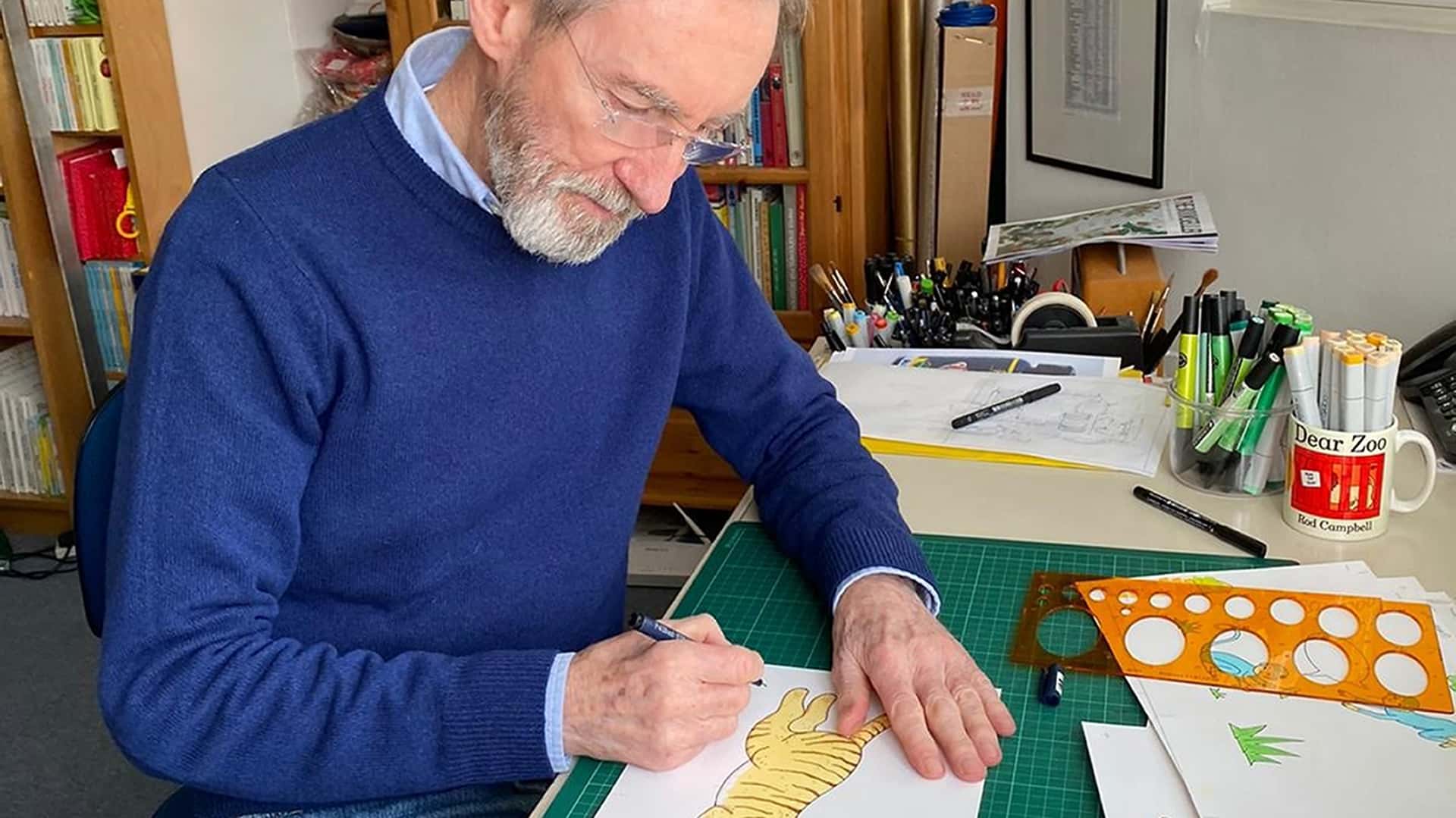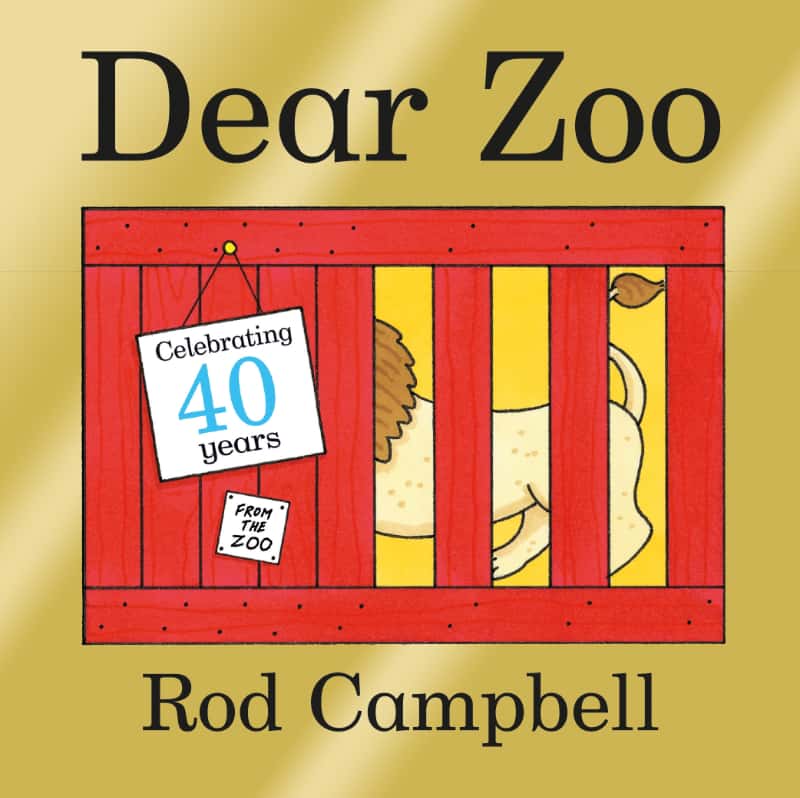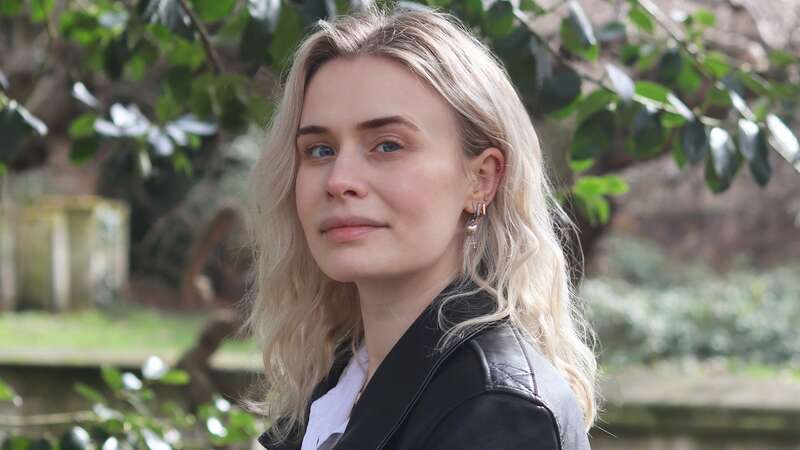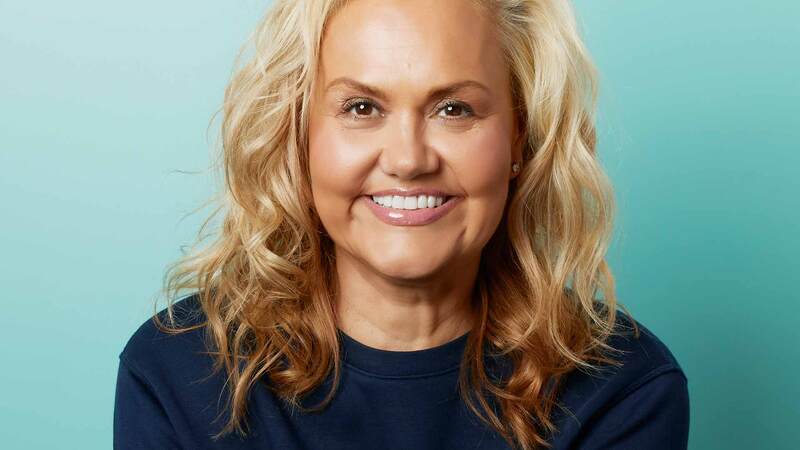You are viewing your 1 free article this month. Login to read more articles.
Macmillan marks Dear Zoo milestone
Macmillan has released a golden edition of the children’s classic as the beloved children’s book turns 40 this year.
Rod Campbell pictured above can hardly believe that Dear Zoo, the beloved lift-the-flap book for toddlers, is turning 40 this year. Macmillan has just released a golden anniversary edition of the story, first published in 1982, that encourages young readers to lift flaps in order to find out which animal the zoo has sent them.
“If at that stage someone had said we would celebrate 40 years, I would have said ‘Don’t be daft’”, says Campbell. His famous title has sold 2.5 million copies through Nielsen BookScan, but 13 million in total (according to Macmillan), and is as beloved as Eric Carle’s The Very Hungry Caterpillar or Eric Hill’s Spot among titles that have been published for very young children.
Campbell was, in fact, partly inspired by Spot. He was excited about what flaps could do within a children’s book and realised that several things are key: children really like reading about animals; the flaps have to be necessary to the story; and the ending is very important.
What interests me is drawing the child into the book for the first time. It’s a question of making a bridge between a toy and a book. Novelty is so important. It’s an important step in bridging that gap
“There has to be resolution of some kind, like going to bed. They understand that. Or something exciting,” he says. “Then it was a question of choosing the animals… and if you write to the zoo to get a pet they are going to send things that are totally inappropriate, so [I thought] maybe it should end with a pet. That was basically it.”
Chance meeting
Campbell fell into making children’s books (he describes himself as a “book creator”, saying, “I make something entire, all the bits work together”) after doing a PhD in chemistry and various odd jobs, including moving paintings for galleries. He also harboured a desire to paint and it was a chance meeting at a dinner party that led to his sketches being shown to a publisher.
When it comes to making books for children who cannot yet read, Campbell has a deep and instinctive understanding about what makes his fans tick. The repetition within Dear Zoo is important, he says, because the child understands they are safe. “The animals are so-called ‘wild animals’ so you can pretend they are going to leap out and eat you up, but they don’t. That’s really joyous.”
The child also comes to learn the text even though they can’t read it, he says, recounting an anecdote about a visit to a school, where he was surprised to see Dear Zoo on a table offering books that children could take home and read. When he asked why it was there, the teacher said the pupils liked to take it home and read it to their younger siblings. And if the pupils hadn’t yet learned to read, they would still take it home and pretend to read the story out, because they knew it so well.
“Now I can see that what interests me is drawing the child into the book for the first time. It’s a question of making a bridge between a toy and a book,” he says. “Novelty is so important. It’s an important step in bridging that gap.”
Dear Zoo is now available in 29 languages worldwide and is sold in multiple formats, including cloth, board, activity and colouring, and Tesco and Sainsbury’s are both launching clothing ranges this year. The 40th anniversary marketing campaign will encompass a promotion with Scottish Book Trust, and a partnership with a “high-profile family venue”, the details of which are yet to be announced.
Over the years Campbell has published multiple books, including last year’s Look After Us, which must be one of the few non-fiction books about endangered animals published for toddlers. His bibliography also includes Dear Santa, Oh Dear!, I’m Hungry! and Buster’s Day. Originally published by Blackie, he founded Campbell Blackie Books as a partnership with his former publisher in 1987.
It did “extremely well” but after seven years he began to feel weary, and sold the business to Macmillan when he heard that Kate Wilson (then working at Macmillan Children’s Books, now m.d. of Nosy Crow) was looking for a young list. He then spent 12 years in France, but describes this period of collaborating with Macmillan, after his return to the UK, as the best part of his career. “Coming back was the best thing,” he says. “The people here… I can’t speak too highly of them.”
When asked if he plans to retire, he says he doesn’t know. “I can’t go on forever. I’m getting older and I forget about things. But I can’t help myself sometimes. I feel tired and think I should be having a holiday, but of course I never take one.”
Photography: Francesca Stenhouse














